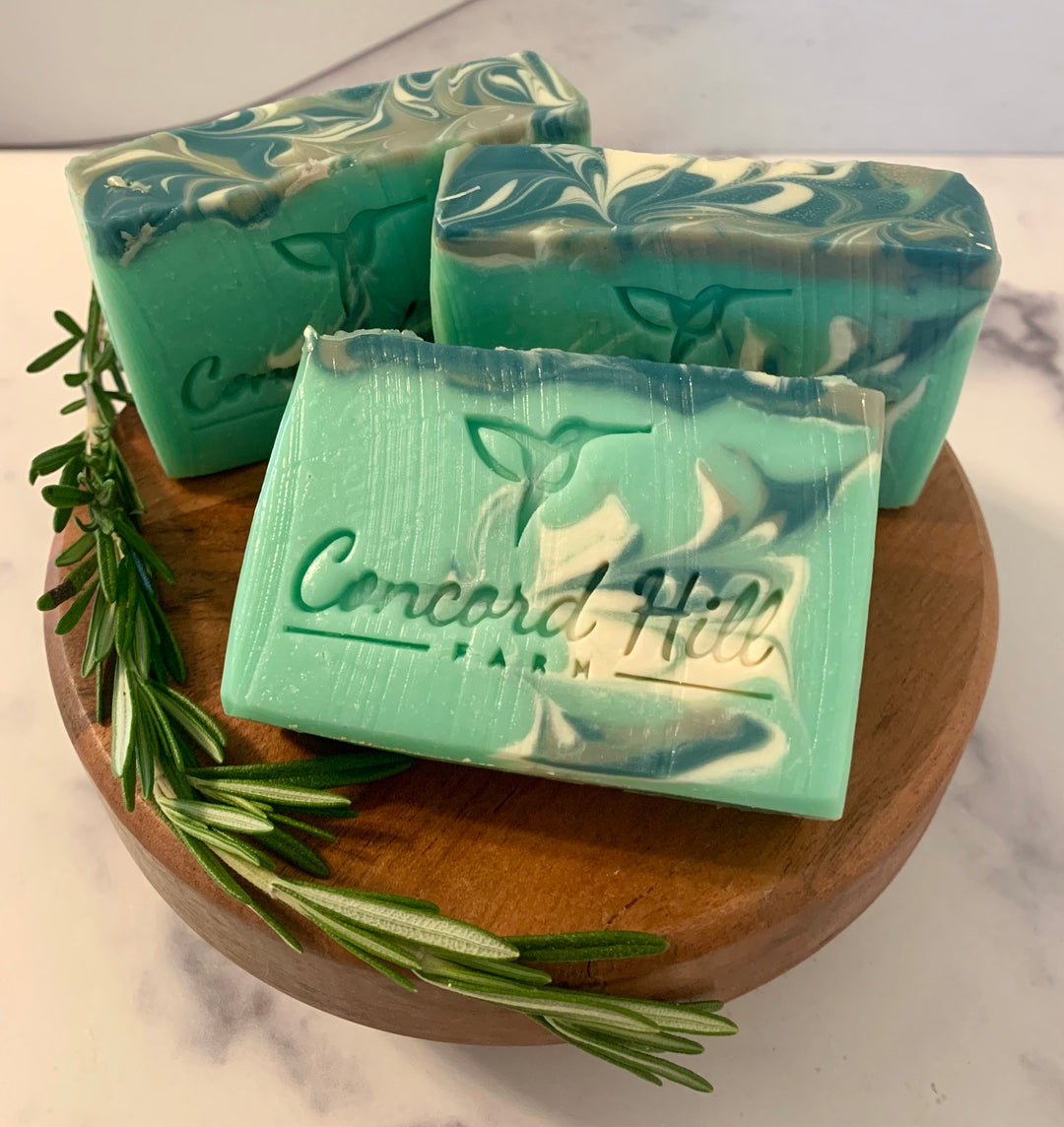
Rosemary Mint Soap
1 review
Bright and clean with organic peppermint and rosemary essential oils. This bar is crafted to offer a revitalizing pick-me-up. It's formulated with activated charcoal, green zeolite clay, and shea butter. One of our best sellers!
Ingredients: Distilled water, sodium hydroxide, RSPO palm oil, coconut oil, virgin organic olive oil, sweet almond oil, shea butter, castor oil, sodium lactate, activated charcoal, green zeolite clay, tussah silk, organic rosemary and peppermint essential oils.

